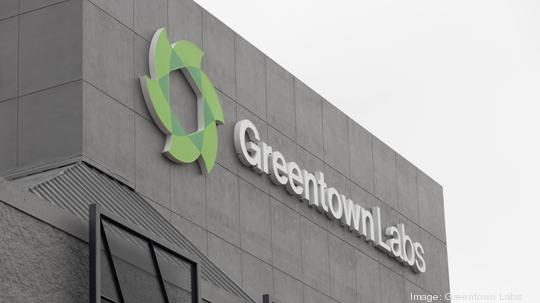
After the collapse of Silicon Valley Bank, startups everywhere were forced to take a closer look at their financial relationships, and the climate tech sector was no exception.
Juliana Garaizar, head of the Houston arm of climate tech incubator Greentown Labs, was at Austin’s SXSW event when news of SVB's fall broke and saw founders caught by surprise. Greentown has been in touch with its members to provide advice on expanding banking relationships and drawing on alternate funding sources.
“One of the things we've established [from a mentoring standpoint] is kind of risk management in terms of banking, which was never the case before. I don't think we ever thought that that was a risk we had to manage,” Garaizar said. “Now we have specific bankers, and we're talking to our members on how to mitigate the risk by having different accounts, with different thresholds so that they can be secure where the [Federal Deposit Insurance Corp.] is concerned.”
Meanwhile, an early April report from Pitchbook found investment in the climate tech field during the first quarter of 2023 dropped by 36% from the fourth quarter of 2022, and quarterly deals had dropped over 50% from the sector’s peak in Q3 2021.
In terms of venture capital funding, Garaizar encouraged companies to seek out corporate venture arms that continue to invest in sustainable technology, such as Chicago-based United Airlines (NYSE: UAL), which launched a $100 million fund for sustainable aviation fuel technologies in February.
Corporate venture arms can sometimes provide companies with pilot programs that serve as testing grounds for products. Garaizar compared these pilots to clinical tests for medicines performed on the path to Food and Drug Administration approval, but said the process for green technology is not as concrete.
“Designing a pilot to get specific results is key,” Garaizar said. “Because we don’t have anything like the FDA process, where milestones unlock specific funding goals, pilots kind of take a very specific and important role in unlocking value as a milestone to get funding in the climate tech space. I would say that some companies may overcomplicate pilots, costing a lot more than needed to prove that their technology is ready to be implemented out of the workbench or the lab.”
Other potential funding sources come from the federal government, which has prioritized opportunities for advancing green technology ranging from the Advanced Research Projects Agency for Energy's grants to the Inflation Reduction Act’s $370 billion of investments for decarbonization. Department of Energy Secretary Jennifer Granholm visited Houston in March and heard comments from Greentown Labs entrepreneurs on difficulties accessing certain types of funding.
“Maybe smaller loans that could help unlock that valley of death in terms of funding or help founders reach milestones,” Garaizar said. “There's a huge hurdle now for a lot of startups that are trying to get that money but don't have the capacity to go through an application process that is pretty labor intensive.”
Despite the financial challenges facing climate tech startups, Garaizar believes the sector’s staying power is still intact and holds a niche for banks to invest in.
“The fact that [SVB’s] assets were mismanaged doesn't mean that the space doesn't merit the attention of banks,” Garaizar said. “I think that's something that many banks are eyeing and are wondering internally: 'Who's going to take a space that SVB left?'"
Several other Houston startup economy leaders have called for changes in the federal banking system to prevent future collapses like SVB's while aiding startups that rely on friendly banks for funding.





